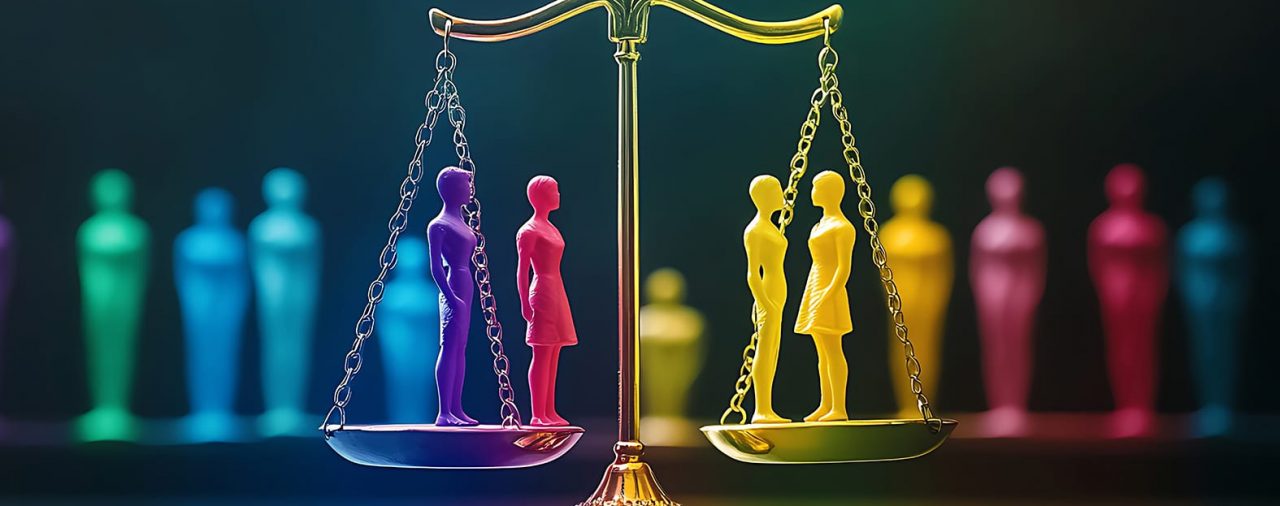Content Highlights
Although the term “gender identity” recently has come under intense scrutiny, you may be unaware of its full meaning until it impacts their own experiences at work.
At Gardner Employment Law, we represent high-level executives and managers facing issues in the workplace. Understanding your rights under Title VII, including gender identity can be crucial in the rapidly evolving legal landscape of today.
What Does “Gender Identity” Mean?
Gender identity refers to an individual’s internal understanding of their own gender, whether that be male, female, both, or neither. It may or may not align with the person’s biological sex at birth. For example, someone who was born with the physical characteristics of a male may identify and live as a woman, and vice versa.
This term is different from “sexual orientation.” Gender identity is about who you are; sexual orientation is about whom you’re attracted to.
Legal Landscape: Does the Law Recognize “Gender Identity”?
The U.S. Supreme Court answered this question “yes” in Bostock v. Clayton County, decided in 2020. In that case the Supreme Court held that decisions made on the basis of sexual orientation or gender identity are “because of sex” under Title VII of the Civil Rights Act and thus are discriminatory. The Bostock opinion recognized that the law protects the employment benefits of LGBTQ+ persons and that they cannot be denied those benefits on the basis of sex, i.e., gender identity.
The Equal Employment Opportunity Commission (EEOC) released guidelines after that ruling, declaring that employers are not allowed to deny employees access to restrooms, prohibit the use of chosen pronouns, or disallow dress codes that are in line with their gender identity.
But the tides have shifted. A May 2025 ruling by a federal court in Texas v. EEOC struck down portions of the EEOC’s guidelines. The federal district court in Amarillo, Texas, held that the EEOC had overstepped its authority by permitting access to restrooms, use of pronouns, and allowing apparel that align with an employee’s “gender identity.” The court explained that the EEOC had improperly expanded the definition of “sex” under Title VII. According to the court, requiring employers to respect pronoun choices, bathroom use, and dress codes based on gender identity went beyond what the law permits.
What Does the Definition of “Gender Identity” Mean for You at Work?
If you are a manager or executive and feel that you are being targeted, demoted, or disciplined for your gender identity, or for respecting the gender identity of others, you are not alone. While employers often frame these actions as performance-based, it is also the case that some companies use this reason to mask underlying illegal bias.
For example, a physician who is openly transgender may suddenly face heightened scrutiny or be placed on a performance improvement plan (PIP) after years of positive reviews. Or a manager who supports inclusive policies may be accused of violating “conduct standards.” If there is no factual basis for these actions, they raise red flags.
Despite shifting federal positions, many states and municipalities still uphold strong protections for gender identity in the workplace. Furthermore, inconsistent application of company policies or selective enforcement can point to pretext for discrimination. Employment decisions cannot be made “because of sex.”
Protecting Your Legal Rights
If you are being disciplined, marginalized, or forced out possibly under the guise of a vague performance issue, we can help determine if your employer’s actions are unlawful. If your gender identity or advocacy for others has become an issue, it may be time to seek counsel. Give us a call.

